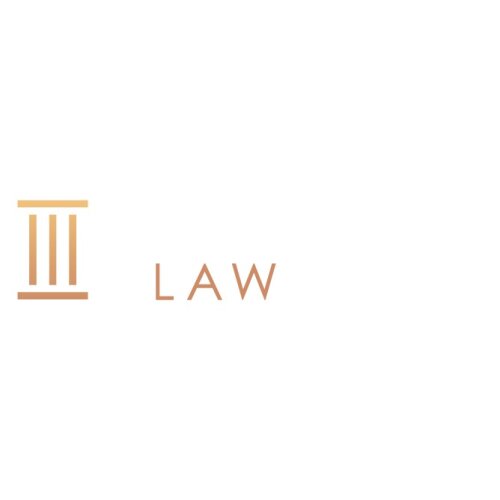Best Criminal Litigation Lawyers in Sri Lanka
Share your needs with us, get contacted by law firms.
Free. Takes 2 min.
Or refine your search by selecting a city:
List of the best lawyers in Sri Lanka
About Criminal Litigation Law in Sri Lanka
Criminal litigation in Sri Lanka is governed primarily by the Penal Code, the Code of Criminal Procedure, and various other statutes dealing with specific offenses. It involves the prosecution of individuals or entities accused of committing crimes and extends from the investigation phase to trial and sentencing. The goal is to ensure justice by upholding the rule of law and protecting societal interests. The legal system is adversarial in nature, meaning the prosecution and defense present their cases to an impartial judge or jury.
Why You May Need a Lawyer
There are several situations in which you may require legal assistance in the field of criminal litigation in Sri Lanka. These include being accused of a crime, being arrested or detained, needing to understand your rights in the criminal justice process, or if you are a victim seeking to ensure justice is served. Lawyers can also assist witnesses who are called to testify in court. Expert legal help is crucial in navigating the complex procedures and laws involved in criminal litigation.
Local Laws Overview
Sri Lanka's criminal litigation is primarily framed by the Penal Code and the Code of Criminal Procedure. Key aspects include:
- The Penal Code: This is the primary statute which outlines various offenses and corresponding penalties.
- The Code of Criminal Procedure: It deals with the various procedures for the investigation, trial, and punishment of criminal offenses.
- Judicial Precedents: Court decisions that interpret laws and set precedents play a critical role in structuring criminal litigation.
- Fundamental Rights under the Constitution: Protection of individual rights in criminal proceedings, including the right to a fair trial.
Frequently Asked Questions
What should I do if I am arrested?
Remain calm and exercise your right to remain silent until you have contacted a lawyer. Ask to speak with a lawyer immediately.
How long can I be detained by the police without being charged?
Under Sri Lankan law, a person can be detained up to 24 hours. This can be extended with magistrate approval if further investigation is required.
What are my rights if accused of a crime?
You have the right to legal representation, the right to a fair and speedy trial, and the right to remain silent.
Can I get bail if I am arrested?
Whether you can get bail depends on the nature of the crime you are accused of and other circumstances. Certain serious offenses may not allow for bail.
What is a preliminary inquiry?
A preliminary inquiry is held to determine whether there is sufficient evidence to proceed with a trial.
How can a lawyer help in criminal cases?
A lawyer can help you understand the charges, represent you in court, negotiate plea bargains, and ensure that your rights are protected throughout the process.
What happens at a criminal trial in Sri Lanka?
At trial, both the prosecution and defense present evidence and arguments. The court then decides on the guilt or innocence of the accused.
Can I represent myself in court?
While you can represent yourself, it is not recommended due to the complexity of legal procedures and the seriousness of criminal charges.
What is the role of a jury in criminal cases?
In certain serious cases, a jury is used to determine the guilt or innocence of a defendant based on the evidence presented.
What is an appeal in criminal litigation?
An appeal is a request for a higher court to review and change the outcome of a court decision, usually based on claims of legal errors during trial.
Additional Resources
For further assistance or information, individuals can consult resources such as:
- The Ministry of Justice in Sri Lanka
- The Bar Association of Sri Lanka
- Local legal aid commissions or organizations providing free or low-cost legal services
Next Steps
If you require legal assistance in criminal litigation, consider the following steps:
- Contact a qualified criminal lawyer with experience in handling cases similar to yours.
- If detained, request to contact a lawyer immediately to ensure your rights are protected.
- Gather and preserve any evidence or documents that may support your case.
- Familiarize yourself with the charges and legal process involved by consulting with your lawyer.
- Act promptly as legal proceedings often have strict timelines.
Lawzana helps you find the best lawyers and law firms in Sri Lanka through a curated and pre-screened list of qualified legal professionals. Our platform offers rankings and detailed profiles of attorneys and law firms, allowing you to compare based on practice areas, including Criminal Litigation, experience, and client feedback.
Each profile includes a description of the firm's areas of practice, client reviews, team members and partners, year of establishment, spoken languages, office locations, contact information, social media presence, and any published articles or resources. Most firms on our platform speak English and are experienced in both local and international legal matters.
Get a quote from top-rated law firms in Sri Lanka — quickly, securely, and without unnecessary hassle.
Disclaimer:
The information provided on this page is for general informational purposes only and does not constitute legal advice. While we strive to ensure the accuracy and relevance of the content, legal information may change over time, and interpretations of the law can vary. You should always consult with a qualified legal professional for advice specific to your situation.
We disclaim all liability for actions taken or not taken based on the content of this page. If you believe any information is incorrect or outdated, please contact us, and we will review and update it where appropriate.
Browse criminal litigation law firms by city in Sri Lanka
Refine your search by selecting a city.














